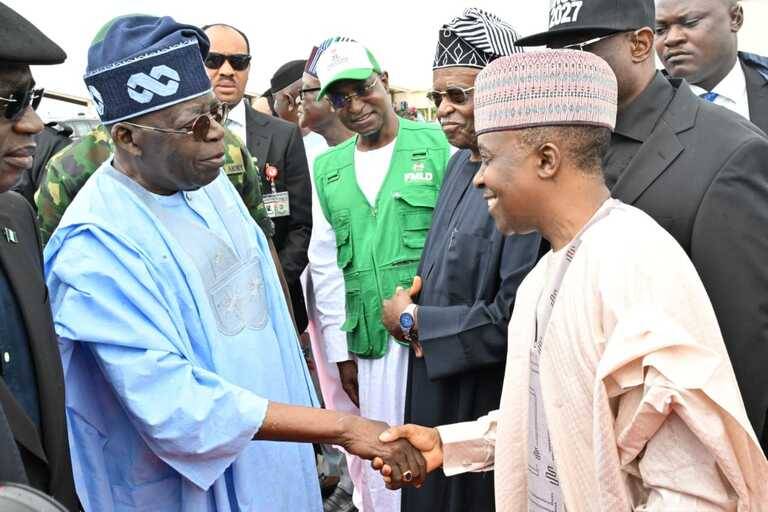President Bola Tinubu on October 11, 2025, granted presidential pardon and clemency to 175 persons, including former lawmaker Farouk Lawan, Maryam Sanda, who was sentenced to death in 2020 for killing her husband, late environmental activist Ken Saro-Wiwa, nationalist Herbert Macaulay, Mamman Vatsa, and many others.
In a release by the Special Adviser to the President on Information and Strategy, Bayo Onanuga, the decision for the pardon followed recommendations by the Presidential Advisory Committee on the Prerogative of Mercy, chaired by the Attorney-General of the Federation and Minister of Justice, Lateef Fagbemi (SAN).
The list, released on Saturday, was divided into six parts: pardoned, posthumous pardon (including the Ogoni Nine), victims of the Ogoni Nine honoured, presidential clemency (clemency beneficiaries), list of inmates recommended for reduced term of imprisonment, and list of inmates on death row reduced to life imprisonment.
The pardon has since generated reactions from many Nigerians.
Expert reacts
Professor Sesan Fabimise of Afe Babalola University, Ado Ekiti, in an interview with this paper, shed light on the extent of the presider’s power to grant pardons, stating that as long as the power is exercised legally, nobody can question it.
According to him, while speaking with the New Daily Prime exclusively, the nation’s head prerogative of mercy is a discretionary power conferred by the constitution, and its exercise cannot be challenged in court.
“The president has that discretion to use anyhow. He has this word and he can use it the way he likes and he should,” he said.
When asked if guidelines should be put in place for exercising this power, Professor Fabimise responded, “By the time when you call something a discretionary power and you start listing procedures, then it is no longer discretionary.”
He emphasised that attempting to prescribe procedures for the exercise of this power would undermine its discretionary nature.
“If you start prescribing procedures to be followed, then you are removing the discretion in it,” he noted.
On whether the president’s decision can be challenged in court, he added, saying, “No, the President cannot be taken to court over the exercise of any discretionary power that has been given to him by the constitution.”



